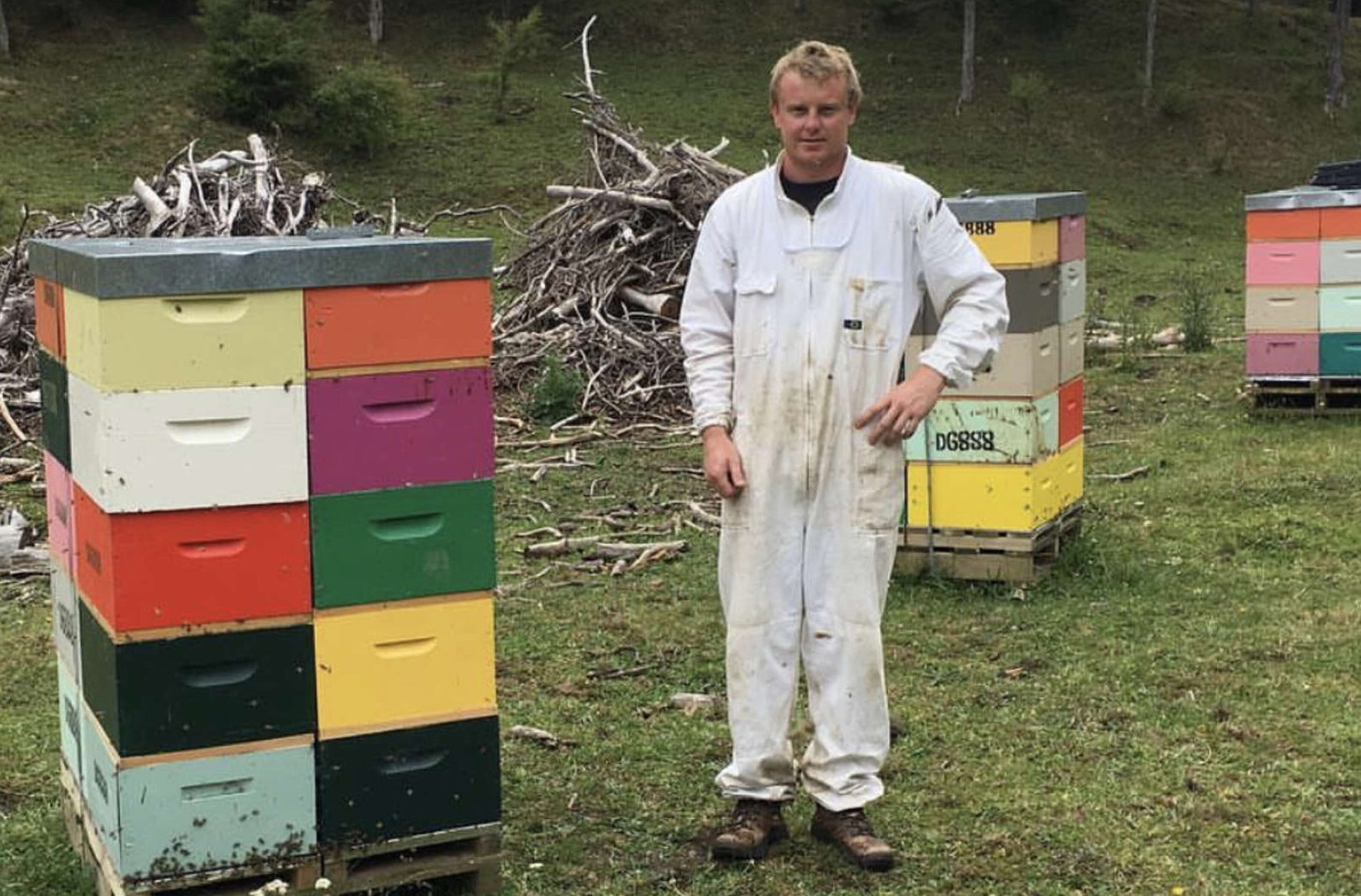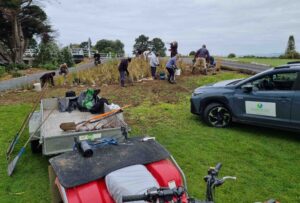Thomas Menefy is the king bee of Menefy Honey & Pollination which he established on his Waihī lifestyle block in 2015 to service nearby kiwifruit orchards for pollination.
The former fertiliser spreader driver told The Profile the business, which he operates alongside his 1.37 hectare kiwifruit orchard called the Beez Kneez, produced more than ten tonnes of honey annually with the help of up to 90,000 working bees.

“[Waihī] is a good location for honey production, [there’s] a lot of farmland and we’ve got the Kaimai [Range] surrounding it and the Coromandel Ranges.
“There’s a lot of variety of trees and flowers which keeps [the bees] happy,” he said.
The operation has 550 hives on 18 farms around Waihī, with 60,000 to 90,000 bees in each colony.
“We concentrate on the kiwifruit pollination [between November and December]… and then we put [the hives] out on the sites to get a bit of honey… we aim to do eight to ten tonnes of bush honey and we aim to do two to three tonnes of mānuka.”
Thomas said he trimmed the honey from the honeycombs after New Year and they were taken to Whangamatā to be extracted into drums.
“We then take a couple of drums down to Katikati to get potted up into jars and then we sell the jars and we’ll sell the majority of our honey commercially in drums and then it gets exported overseas,” he said.
Thomas said while the business had been buzzing, it had felt the sting this year due to the wet weather.
“There’s not a lot of demand this year and the bush honey’s actually been quite bad because of the wet weather – the bees are just inside when it’s raining,” he said. “Because of all that heavy rain we had in January and late December, they couldn’t forage for [the honey] so they just ate [the honey] they had.
“We’ve been going round pulling honey off and there’s not much at all this year, normally it’s really good but you can’t do much about the weather.”
Despite this year’s wet weather, Thomas said his products continued to be swarmed by honey lovers.
“Customers love the honey, we sell locally at our honey stall, in the local shops, and supply Falls Retreat with buckets of honey for their cooking,” he said.




